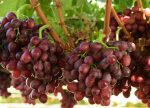Namibia’s ban on South African citrus and vegetables has taken a new twist, with newly appointed South African Agriculture Minister John Steenhuisen saying that he will move to engage Namibia, leveraging the provisions of the SACU agreement, in an effort to avert a potential trade war.
Steenhuisen, who believes that an amicable solution to the ban is possible, will also meet his counterparts from Botswana, who have imposed a similar ban.
Namibia imposed the ban between 2021 and 2025, while Botswana is from June until the end of August. The rationale for it, from both Botswana and Namibia’s sides, is that it would incentivise domestic production of vegetables in these countries and lower their dependence on South Africa.
“We believe we can find an amicable solution; I don’t think we need to end up with a situation where you block our products and we block yours. I don’t think it’s helpful to both countries. I hope we will really be able to sit around with Botswana and Namibia (counterparts) and we two can compromise—we have an agreement in SACU. The agreement is very clear: you cannot just temporarily close borders or shut down industry; now we obviously want to hear Botswana and Namibia’s position on the matter, but I don’t think it can be escalating to a trade war,” Steenhuisen said last week.
Stakeholders across the sector have criticized Namibia and Botswana for their prolonged ban on imported vegetables from SA, which has sparked controversy in the agricultural community.
Wandile Sihlobo, chief economist of the Agricultural Business Chamber (Agbiz), recently expressed concerns about remarks made by Botswana’s President Mokgweetsi Masisi on social media platform X. Masisi expressed his support for the country’s ban on vegetable imports from SA, framing it as a strong measure to enhance local farming and bolster the economy.
“In December 2023, Botswana announced the ban would be extended for another two years. At the time, many in South Africa, including myself, were unhappy about this decision. The source of frustration arises from the appreciation that these countries are members of the Southern African Customs Union (Sacu), a bloc encouraging free trade and economic integration. Still, the Sacu agreement has a loophole allowing such restrictions. An article by researchers at South Africa’s Department of Trade and Industry citing the Sacu Agreement states that “Article 18 (2) … notes that Member States have the right to impose restrictions on imports or exports for the protection of: health of humans, animals or plants, the environment, treasures of artistic, historic or archaeological value, public morals, intellectual property rights, national security and exhaustible natural resources”.
“Viewed in this context, one can only guess that Botswana and Namibia would argue they are boosting their domestic production of vegetables for “national security.” This action has had a financial impact on the South African farmers who have, for many years, produced for the domestic market and the region at large,” expressed Sihlobo, who added that South Africa’s response will need to be sensitive but firm.
The South African Agricultural Business Chamber recently reported a significant decline in confidence in the agricultural sector, which has now plunged to its lowest level since the financial crisis of 2009, reaching just 38 points in the second quarter of 2024. This represents a drop from 40 points in the previous quarter and 44 points in the same period last year, according to the Agbiz/IDC Agribusiness Confidence Index (ACI).
From August 1 to August 30, 2024, the Namibian Agronomic Board has implemented specific border control measures for various agricultural products. The Namibian Agronomic Board strictly regulates the importation of certain vegetables, completely closing some borders to their importation. The restricted vegetables include beetroot, butternut, cabbage, carrot, English cucumber, coloured pepper, onion, pumpkin, cocktail tomato, round tomato, and spinach. In contrast, other products such as gem squash, washed potatoes, sweet potato, watermelon, sweet melon, and sweetcorn are permitted for import, with their borders remaining open. Additionally, a prorata system is in place for green pepper, jam tomato, and iceberg lettuce, indicating that their importation is partially restricted or controlled. These measures are designed to protect local production and ensure market stability, fostering a balanced approach between supporting domestic growers and meeting consumer demand.
During June 2024, vegetable prices in Namibia experienced notable fluctuations at both the farmgate and retail levels. Potatoes, a staple crop, were priced at the farmgate level between N$4.50/kg and N$9.50/kg, while retail prices in Windhoek ranged from N$14.10/kg to N$29.10/kg. This relatively stable market was shaped by factors such as supply conditions and transportation costs.










